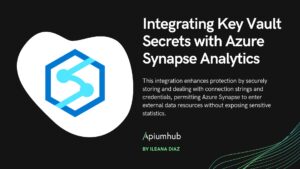Table of Contents
Integration has economic benefits, according to software experts. Data and services are more accessible and adaptable now in part because thanks to the API economy and the use of microservices. Businesses can swiftly grow up by constructing a business model around APIs. This can be accomplished by using APIs to transform their own data and services into a platform that others can build on and utilize, or by accessing third-party services and data.
APIs simplify access to the information contained in software platforms and their functionality. APIs make it easier to get information from software platforms and use their features. APIs make it easy to combine software systems and their data. As it allows enterprises to benefit from their APIs and build business models around them, the API economy is gaining traction.
Today we’re taking a peek at this trend and see what are the odds for some companies to grow.
The importance of the API economy
According to Forbes, over 40% of large organizations have 250+ APIs. And 71% plan to use even more APIs over the next year. The rising demand for data integration is partly due to the prevalence and expansion of mobile computing and the internet of things (IOT). This is part of the vast amount of data we generate and the wide range of devices and systems we employ to process it. APIs are the foundation of the Internet of Things since they enable IoT devices to connect with easy integrations.
Rather than creating all of the APIs that IoT and mobile devices require from scratch, developers may mix and match APIs from various sources, allowing for more interoperability, customizability, and efficiency in order to satisfy rising customer demands.
APIs are customer-facing, customizable software interfaces that enable previously distinct software components to communicate successfully by overcoming platform incompatibilities. APIs provide new levels of communication and data sharing across a wide range of applications, regardless of their platforms, data structures, or underlying technology. APIs’ ingenuity has led to the realization that they can be a critical component of enterprise solutions that impact the bottom line by facilitating efficiencies, growth, and innovation. As a result, the API economy has evolved, which is defined as the use of APIs to increase an organization’s profitability informally.
API economy benefits
The API economy’s key benefit is increasing API access and usage.
One of the most significant advantages of the API economy is that it allows and encourages customers to work with API providers to create more engaging and efficient user experiences. In a physical economy, APIs and microservices may be stacked, changed, and upgraded quicker than products. APIs provide enterprises with improved flexibility, agility, and data access, allowing them to expedite business operations and engage in previously inaccessible business ecosystems.
Vendors may fulfill the needs of specific groups of consumers without having to re-architect software by providing the interfaces that allow microservices to communicate with each other; it also provides customers more control over vendor apps.
API economy benefits include:
- Continuous improvement: APIs are made available to third parties for customization and modification. This also leads to better customer experience as APIs are customizable, so users and providers can make changes and provide feedback to improve the consumer experience.
- Accelerate time-to-market: using APIs to leverage existing services helps you accelerate product delivery. Rather than designing everything for your app, you can concentrate on the truly unique features.
- Generate competitive advantage & revenue: Connecting services and apps via APIs provides you a competitive advantage. Because products can get to market faster, companies have more freedom to experiment and find new ways of generating revenue.
- Drive Value: Using APIs helps you drive value for your business. The API economy levels the playing field by allowing giant corporations, small to medium-sized firms, and inexperienced developers to interact with the same tools empowering your partners, and integrating your internal applications.
API economy challenges
There are also challenges in the API economy such as controlling access to APIs & managing APIs, backend systems, infrastructure & deployment. Controlling API access is a major concern. Customers and partners should be able to use APIs. However, you must ensure that access is safe, as well as the security of backend data. Controlling access requires an API gateway. However, not all gateways are created equal. You must choose the proper one to meet your security requirements, especially in the workplace.
Also, it’s difficult to keep track of everything — APIs, backend systems, infrastructure, and deployment. You must be able to see what is being used and where it is being used. It could be costly if you overlook something. The API has a high level of risk. The ability to manage APIs is critical to overcoming this obstacle. But not all solutions are the same. In order to assure compliance and deliver value in the organization, you must have meaningful analytics built into your APIs.
API economy models
The big question is how your business can succeed in the API economy, and this will depend on choosing the right API platform to get protection & positive customer/technical experience, building a solid strategy to assess API revenue opportunities, create a culture around digital transformation to define the value up front and scale your product & manage the API Lifecycle to help you define every single step on your development process.
With API economy models you are able to access third party data and services from companies like Stripe, VYou and Salesforce to handle things like payment, user management and lead management.
Of course, there is a clear difference in how a business like VYou and one like Stripe position themselves as an API Economy. Stripe bases its business model entirely on an API to facilitate online payments, while Helix offers an SDK service to allow other companies to leverage its data and services. VYou goal is to shorten time-to market, as well as to save development costs, providing user management features to its clients.
I’m sure you know many more companies than you can imagine with a business model based on API economy.
I’m sure you know of many more, as nowadays almost any service is available via an API connection.
Let’s discuss the pros and cons, as well as assessing whether an API Economy could be a promising business model for your business.
Author
-
Senior Marketing Consultant & Marketing Manager at Apiumhub. He brings over 10 years of industry experience. He specializes in digital marketing, SEO & business intelligence, delivering results through data-driven strategies.
View all posts











